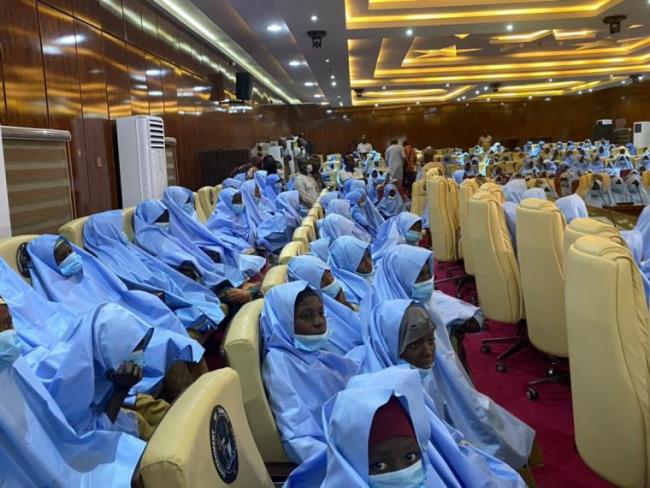NEWS
President Buhari celebrates release of Jangebe schoolgirls

President Muhammadu Buhari has shown “overwhelming joy” over the release of the Jangebe schoolgirls kidnapped last Friday in Zamfara State.
“I join the families and people of Zamfara State in welcoming and celebrating the release of these traumatized female students,” Buhari disclosed in a statement signed by Garba Shehu, the SSA media.

The freed Jangebe schoolgirls
President Buhari stated that he was thrilled that their ordeal came to a happy end without any incident.
He said “being held in captivity is an agonizing experience not only for the victims, but also their families and all of us.”
Nevertheless, while celebrating the release of the students, the President appealed that the people should be more vigilant so that human intelligence could be gathered early enough to stop the bandits’ plans from the beginning.
He cautioned that the time has come to change, totally, the horrid and heartbreaking incidents of abduction.
“Ransom payments will continue to prosper kidnapping,” he cautioned, while advising the Police and the Military to pursue these kidnappers and bring them to justice.
The Zamfara kidnapping (Jangebe kidnapping) was a mass kidnapping of female students in Jangebe, Zamfara, Nigeria. On 26 February 2021, 317 girls aged 12–17 years old were kidnapped by armed bandits who raided the Government Girls Science Secondary School boarding school.
It is the second school kidnapping in Nigeria during 2021, coming nine days after the Kagara kidnapping, in which over 40 people were abducted in a raid on a state school in the state of Niger.
Holding school children hostage for ransom has become fairly common in Nigeria. Armed criminal groups, described by the government as “bandits”, frequently target locals and low-income population as opposed to foreign citizens or wealthy businesspersons.
High profile cases include the Chibok kidnapping by the jihadist group Boko Haram in 2014. Between 2011 and 2020, Nigerians have spent around US$18 million in ransom, with the majority of it being spent in the latter half of the decade.































